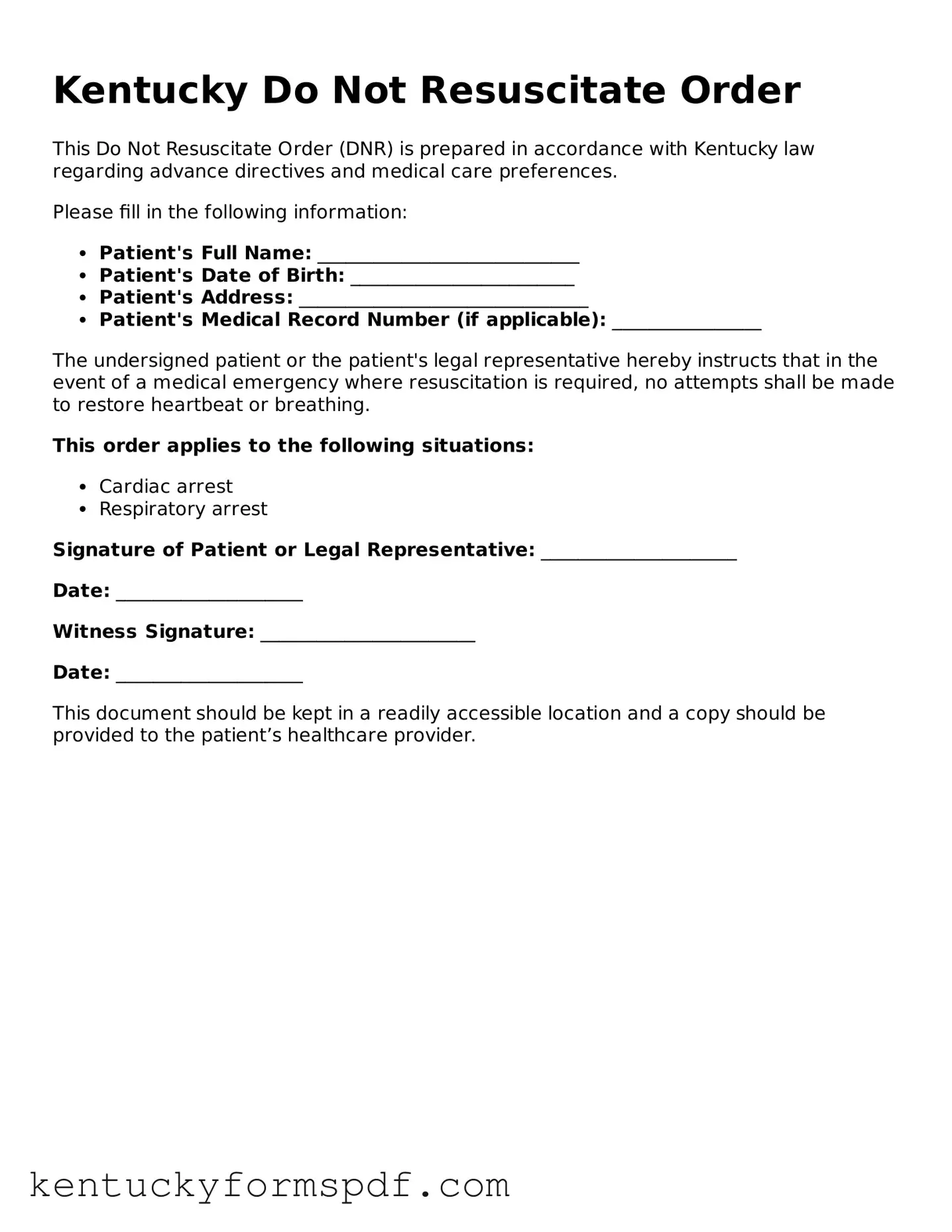Valid Do Not Resuscitate Order Template for Kentucky State
A Kentucky Do Not Resuscitate Order (DNR) form is a legal document that allows individuals to express their wishes regarding resuscitation efforts in the event of a medical emergency. This form ensures that healthcare providers understand and respect a person's desire to forgo life-saving treatments, such as CPR. Understanding how to properly complete and utilize this form is essential for anyone considering their end-of-life care options.
Create Your Form Now

Valid Do Not Resuscitate Order Template for Kentucky State
Create Your Form Now
Pause before you leave — your form is waiting
Fill out Do Not Resuscitate Order digitally in just minutes.
Create Your Form Now
or
Click for Do Not Resuscitate Order File
